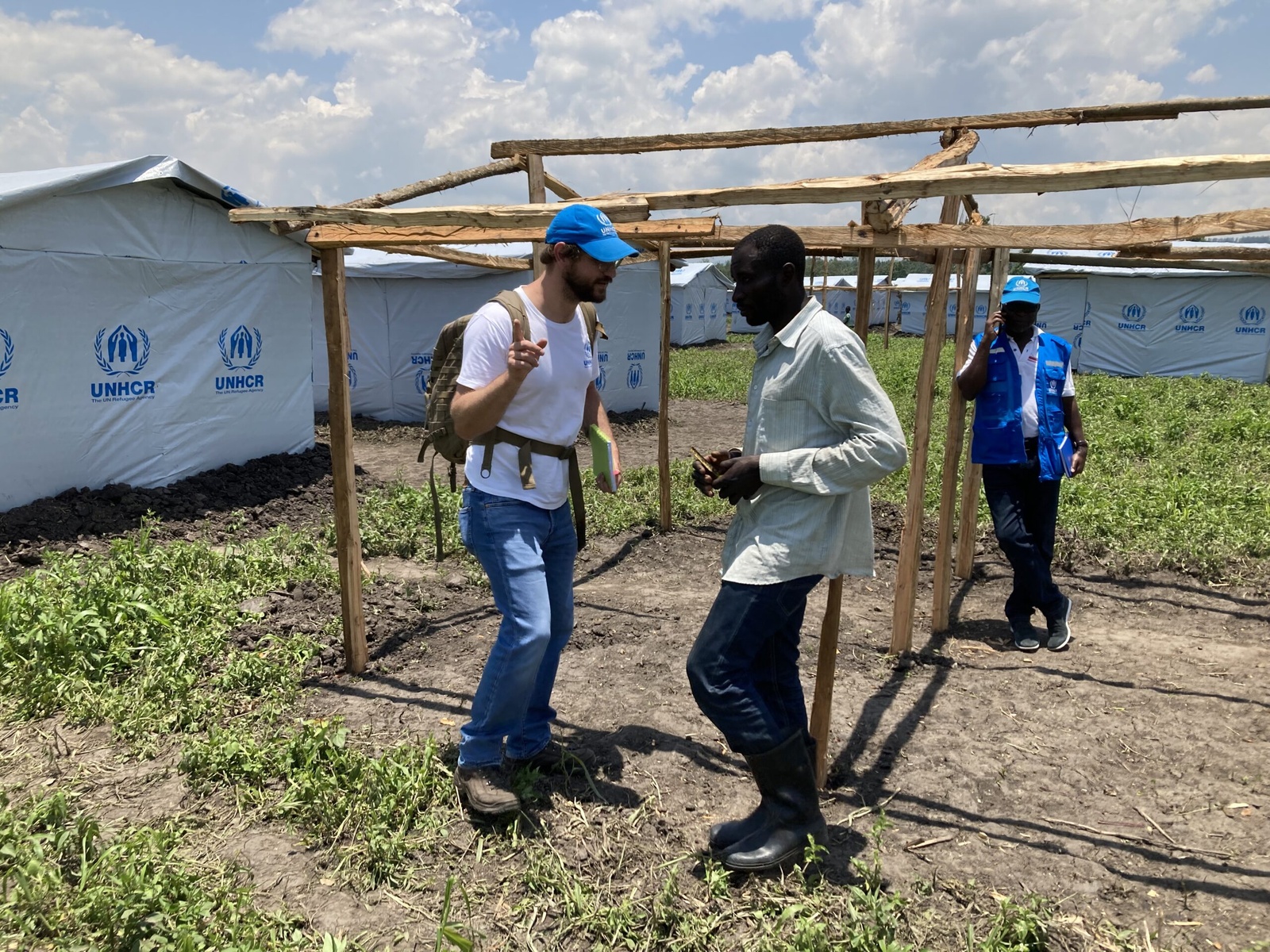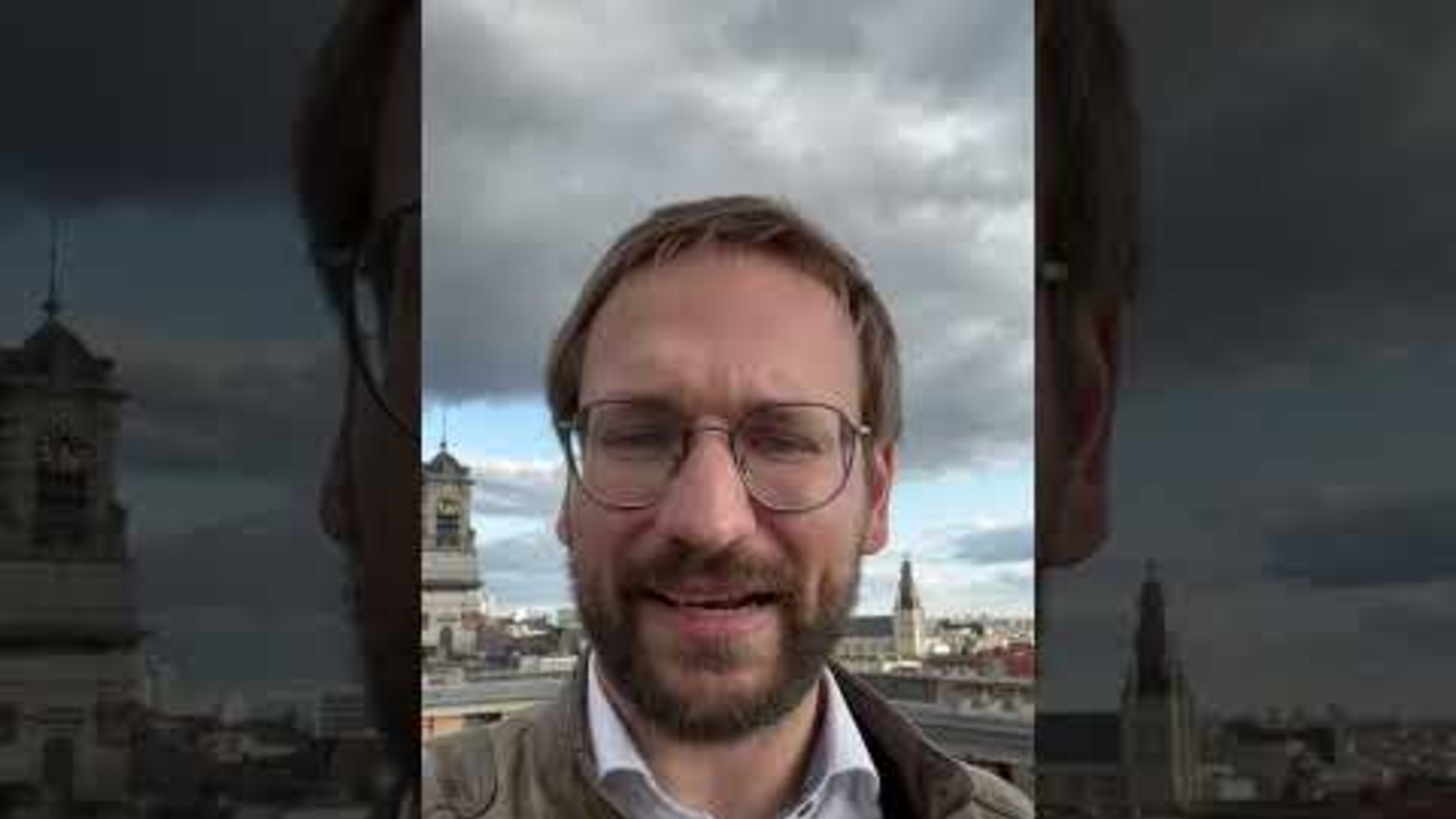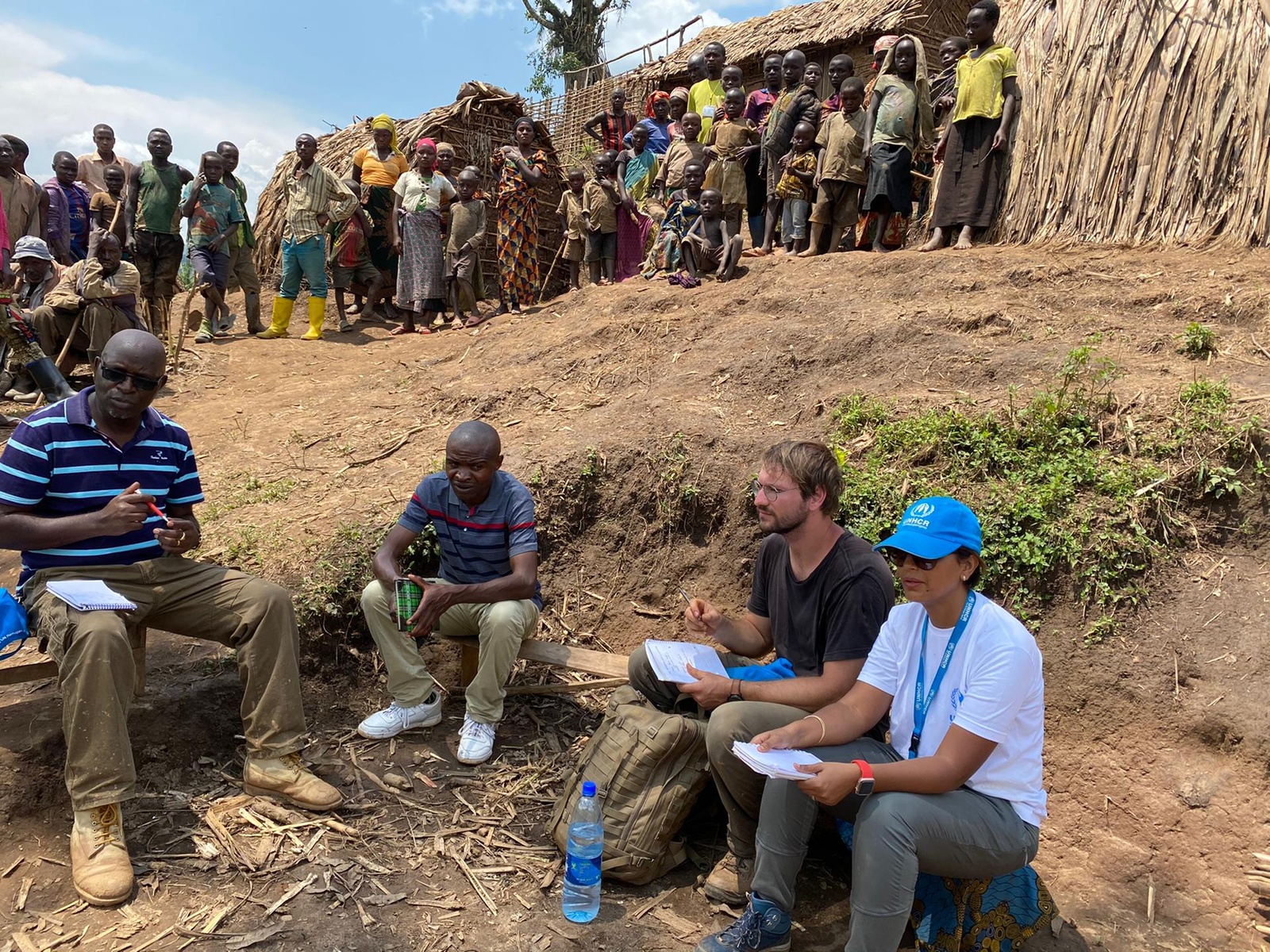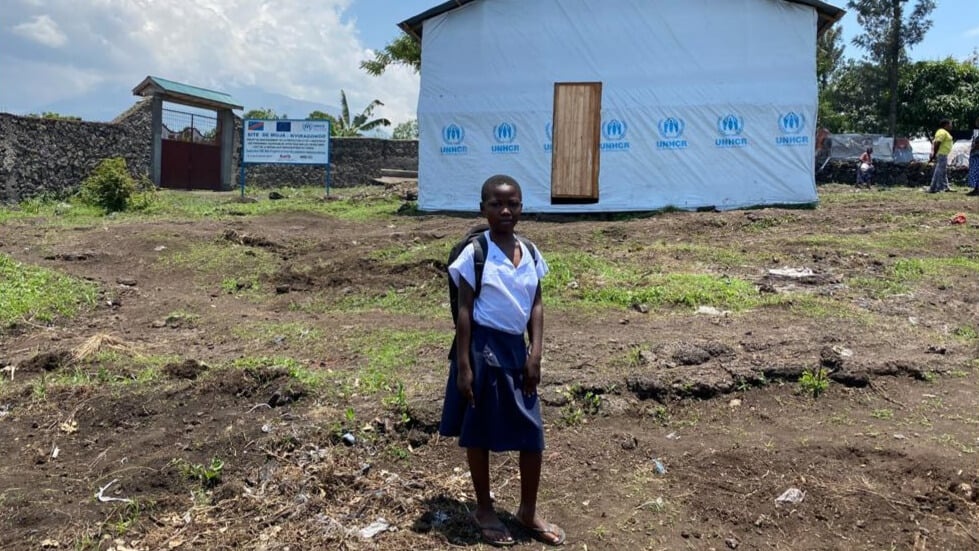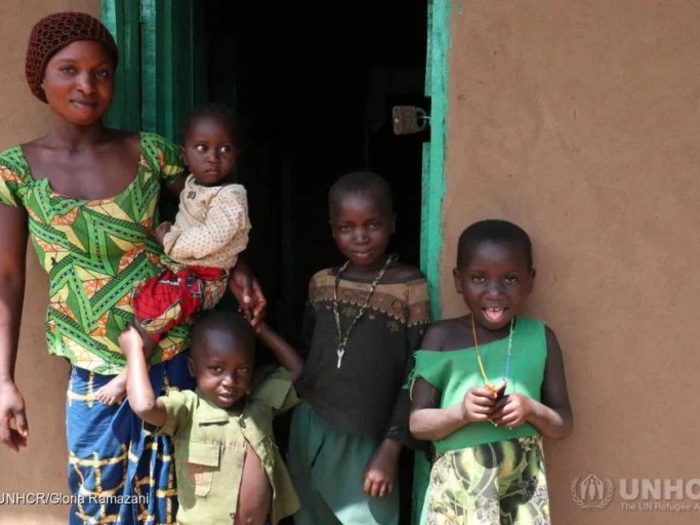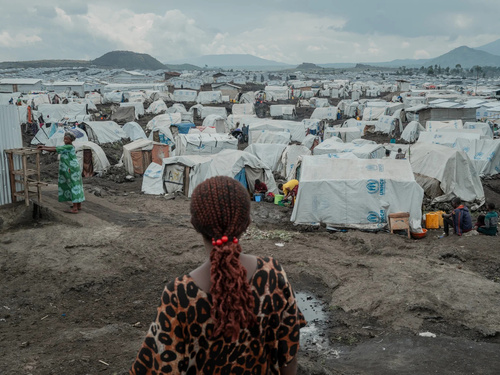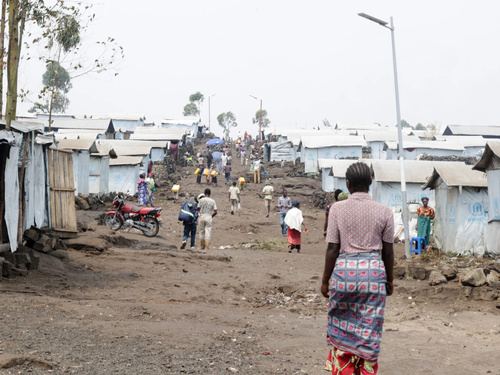The JPO Programme, when young professionals strive to improve the lives of forcibly displaced people in the DRC
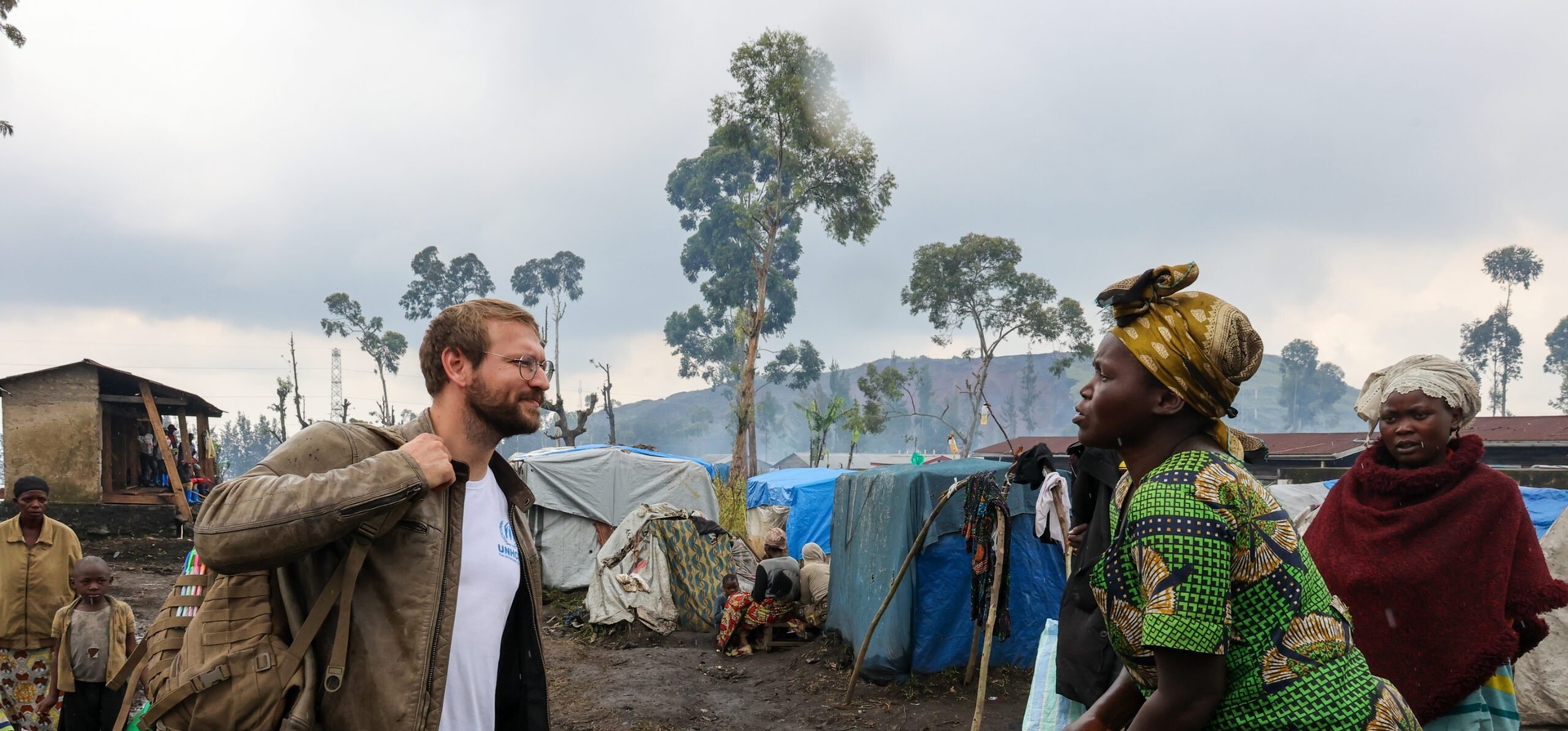
The JPO Programme, when young professionals strive to improve the lives of forcibly displaced people in the DRC
Maarten Loeckx worked as a Junior Professional Officer (JPO) for UNHCR, the UN Refugee Agency, for three years in Goma, in the eastern Democratic Republic of the Congo (DRC). He was involved in providing humanitarian assistance and monitoring the human rights situation for refugees and Internally Displaced Persons (IDPs) in one of the world's most complex humanitarian crises. The Belgian JPO programme gave him the opportunity to gain hands-on experience within the United Nations to improve the living conditions of vulnerable populations in the DRC. Now that he is back in Belgium, we caught up with him to learn more about his experiences in eastern Congo, how UNHCR is working to better protect forcibly displaced people and the challenges it faces in the DRC.
Tell us about the JPO Programme. How did you benefit from it?
The JPO programme is aimed at bringing new talent and ideas to the UN. For the UN, and in this case UNHCR, it means getting staff sponsored by national governments. For a participant like myself the programme provides extensive training and hands-on experience, allowing you to build your career within the UN. The JPO programme offers an added value for all parties.
How did the Programme help respond to the needs of refugees and internally displaced persons in the Democratic Republic of Congo (DRC)?
In Goma, in eastern DRC, we are facing a ‘protection crisis’ due to armed conflict and human rights violations. In that region, UNHCR provides displaced people with basic services, such as shelter, but we also inform people about their rights and duties. We build camps, provide humanitarian assistance and monitor human rights violations in an effort to protect vulnerable groups from violence and exploitation.
In Goma, I realized that basic services and security go hand in hand. Displaced people who live in tents in a refugee camp without streetlights are very vulnerable to new dangers, including sexual and gender-based violence. The JPO programme helped me understand these dangers and how we can play an active role in providing essential assistance.
Maarten shares his experience as a JPO working with UNHCR in Goma
How is UNHCR supporting refugees and IDPs in eastern DRC, and what was your role in this?
UNHCR in Goma is responsible for humanitarian assistance in North and South Kivu, two of the hardest-hit provinces in eastern DRC. There are nearly seven million IDPs in Congo, most of whom are in those eastern provinces. UNHCR actually operates on two levels. First, UNHCR is very active at the practical, humanitarian level, in providing shelter. We can build up to 250 tents a day. So, in one week we can ensure that thousands of displaced people, including many families, have a roof over their heads. We also ensure that people have core relief items, such as blankets, mats and a cooking set.
Second, UNHCR also works to safeguard the human rights of forcibly displaced people. This is part of our protection work. We record human rights violations using statistics, but also by engaging with forcibly displaced people. We guide them to speak to authorities and ensure that they have a voice within their host community.
As a JPO, I took the lead in the Protection Monitoring project. Together with an NGO, we monitored the human rights violations forcibly displaced people faced. The purpose is to communicate to the government, both national and local, as well as to other humanitarian organizations, The fundamental problems faced by the people, where they are at risk and what specific needs they have.
"We have had a surprisingly large impact within the humanitarian system, as we have analyzed statistically and through interviews the vulnerabilities forcibly displaced people face."
One such example is women who are at risk when out in the forest to gather wood because they can fall prey to bandits or armed groups. By listening to these women and engaging with them during focus group discussions, solutions can be found such as alternative fuel for cooking that would eliminate the need for these women to gather wood. With small adjustments, you can greatly improve the safety of these people. It is rewarding to work in a scientific and very impactful way.
How can the international community, particularly Belgium, continue to support refugees and those internally displaced in the DRC?
The humanitarian crisis in eastern Congo unfortunately does not get enough attention. UNHCR and other UN organizations can provide concrete solutions, but more support is needed. First, it is important to continue supporting diplomatic solutions to the conflicts. Second, we need to address illicit flows of arms and raw materials, which continue to fuel conflicts. Third, it is essential to free up sufficient funds for humanitarian aid so that we can respond quickly to crisis situations. Finally, international relations and negotiations must always be based on rights and international law. This approach ensures a more sustainable and peaceful solution to the complex problems in the DRC.
What are your plans and aspirations for the future?
I hope to return to protection work, exploring other regions to gain more experience in protection management. I truly believe that human rights are vital to rule-based international relations and I would like to continue working with the United Nations team to reinforce those rights.
Text and media 1
Want to learn more about the DRC?
Find more information and the latest data on our DRC emergency page.
More news on the DRC


